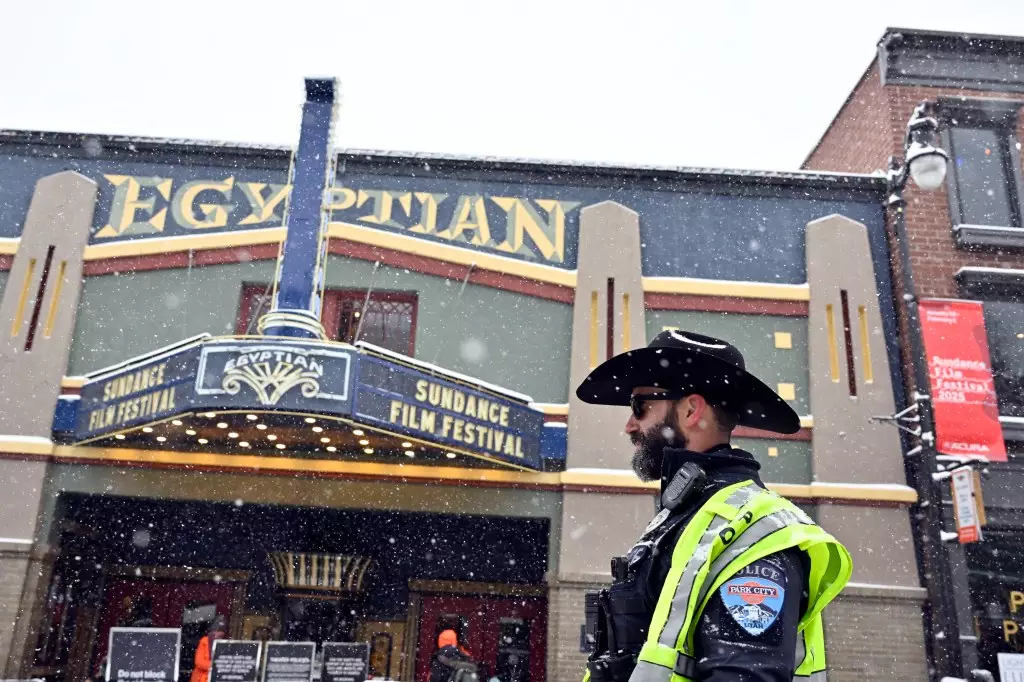As the clock ticks down towards Utah’s governor making a pivotal decision on a contentious bill that seeks to ban the Pride Flag from state-owned properties, the Sundance Film Festival finds itself at a crossroads. The measure to restrict the display of LGBTQ+ symbols in public spaces is not merely a piece of legislation; it represents a broader ideological battle in a state infamous for its conservative values. Governor Spencer Cox’s choice, due shortly, could signal either a commitment to inclusivity or a retreat into regressive politics. Park City Mayor Nann Worel’s recent comments painfully echo a sentiment of impending loss, underlining the Gravity of the scenario. The pressure of this political stage illuminates the difficulties faced by progressive institutions struggling to maintain their roots in a conservatively swayed environment.
The Dance of Incentives: Money versus Morality
Utah’s legislative body passed a significant financial incentive to retain Sundance, amounting to over $3.5 million in state funds. However, this financial lure seems overshadowed by the alarming implications of the recently passed House Bill 77, also known as the Flag Display Amendments. The juxtaposition of financial incentives against a backdrop of discriminatory laws raises a critical question about what values Utah truly stands for. While Governor Cox might tout fiscal responsibility and the economic benefits of retaining Sundance, it becomes evident that the heart and soul of such initiatives hinge on the moral standing of a community. The passage of this law equates to a hollow façade, presenting a welcoming economic landscape while simultaneously erecting barriers against marginalized communities.
Anxiety for the Arts: Impact on Community and Culture
The imminent decision weighs heavily on the local arts community, which has long viewed Sundance as a beacon of inclusivity and creativity. Mayor Worel’s haunting acknowledgment that “change is inevitable” speaks volumes about the cultural unease surrounding the festival’s future. With increasing competition from cities like Boulder, Colorado—assertively wooing the festival with a substantial $34 million tax incentive—the question arises: will Utah be viewed as a land of artistic respite or a hostile environment for progressive ideals? As the impact of legislation like HB77 ripples through the arts landscape, it becomes clear that the festival’s ethos clashes dramatically with the state’s hardline positions.
The Rhetoric of Exclusion: Voices Against LGBTQ+ Communities
The stark rhetoric employed by figures such as Rep. Trevor Lee and Sen. Daniel McCay—who disparage Sundance as “not fitting in Utah anymore”—represents a troubling trend of exclusion that feels more aggressive than ever. Such statements serve not only to marginalize the festival but also cast a shadow over the cultural identity of Utah itself. How can a state that champions itself on hospitality and inclusiveness simultaneously endorse measures that alienate segments of its population? As this dialogue unfolds, it becomes crucial for citizens and policymakers alike to confront the ethical contradictions inherent in such legislative actions.
Prospects in Jeopardy: The Threat to Tourism and the Local Economy
If Sundance decides to abandon its home in Utah, the repercussions would extend far beyond the immediate loss of the festival. The economic impact would be palpable; tourism, local businesses, and the cultural landscape would all bear the brunt of this decision. Cities that rely on events like Sundance to showcase their unique narratives face an existential threat when legislation starkly contrasts with their ideals. The loss of this festival, should it occur, paints a bleak picture for the future, not just of Utah’s arts scene but of its broader socio-political climate. This begs the question: Can Utah afford to lose such a cultural heavyweight simply to placate a discriminatory ideology?
A Moving Forward: What Happens Next?
As the deadline approaches for Governor Cox’s decision, the stakes are higher than ever. What will be the impact if he chooses to endorse the anti-Pride flag bill? Will it symbolize a definitive break from the Utah that once prided itself on its diverse cultural expressions? Mayor Worel emphasizes Park City’s commitment to supporting the arts, yet her resignation from a politically charged role adds a layer of sadness to what could be an iconic chapter coming to an end. The wheels of change are in motion; it’s not merely a question of where Sundance continues but what that decision says about the moral compass of Utah as a state.
In a moment that could forever reshape its identity, Utah stands at a precipice; the coming days will determine whether the Sundance Film Festival’s rich legacy will continue to thrive or become another casualty in the political arena.

